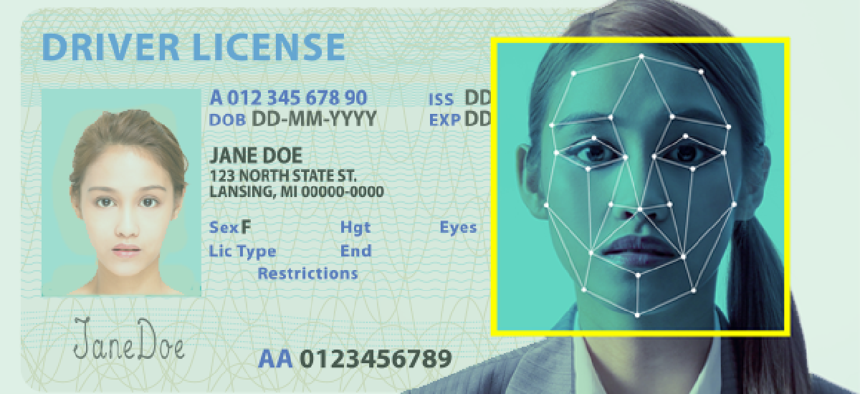NY's facial recognition program continues to nab fraudsters


Connecting state and local government leaders
To date, the technology has flagged more than 21,000 cases of possible identity fraud.
Four driving-while-intoxicated convictions meant that the owner of a trucking firm could no longer legally drive company vehicles. His solution: Buy the identity of a man jailed in Puerto Rico, use that to get a new license and continue to drive.
Thanks to facial recognition technology used by the Department of Motor Vehicles, New York state uncovered this false identity. To date, the technology has resulted in some 21,000 cases of possible identity fraud, with more than 7,000 of those cases generated in the last 18 months alone, the state announced. The uptick in flagged identities is due to a January upgrade that improved the system's ability to better analyze facial features.
"The use of this facial recognition technology has allowed law enforcement to crack down on fraud, identity theft, and other offenses -- taking criminals and dangerous drivers off our streets and increasing the safety of New York's roadways," Gov. Andrew Cuomo said in a statement.
Owen McShane, an investigations director at the New York DMV, explained the process to GCN last year. New Yorkers getting a new license go through the usual application process, which includes having a picture taken. This photo is analyzed by an algorithm and compared to the images in the DMV’s photo database. Images that show up on more than one account are flagged as potentially fraudulent.
The program went live in 2010, and the technology has been upgraded regularly. In the pilot phase, the system could measure only 32 points on an individual’s face; that was eventually improved to 64 points, and today it can track 128. These improvements mean that minor changes -- like glasses or a haircut -- are less likely to trick the facial recognition algorithm.
This technology is being used in several cities and states to spot identity theft and assist in criminal investigations. In spite of successes, however, some have voiced concerns over privacy.
Earlier this year the House Committee on Oversight and Reform sent a letter to the mayors of 10 cities asking for information on their facial recognition programs, including the policies “relating to the retention and use of photographs collected by or accessible to” local law enforcement agencies, manufacturers, providers or federal agencies. In addition, the mayors were asked to provide an inventory of their facial recognition technology systems, including information on costs, tech updates and whether federal grants were used to fund any parts of the systems.
The committee wanted to review the current state of facial recognition technology evaluate whether legislation is necessary.




